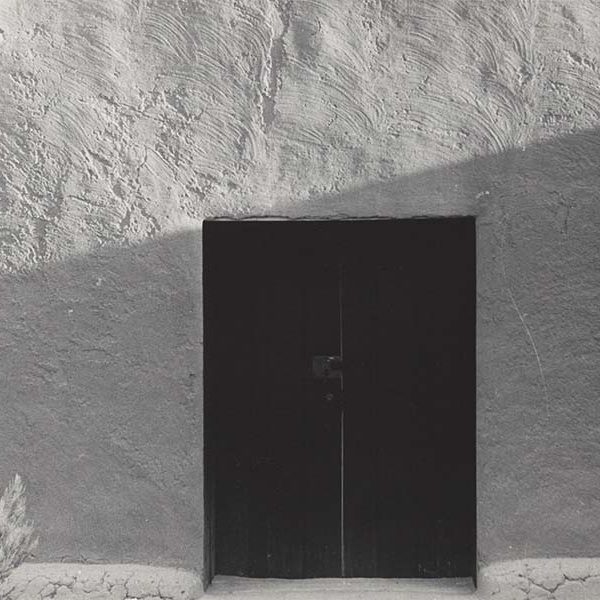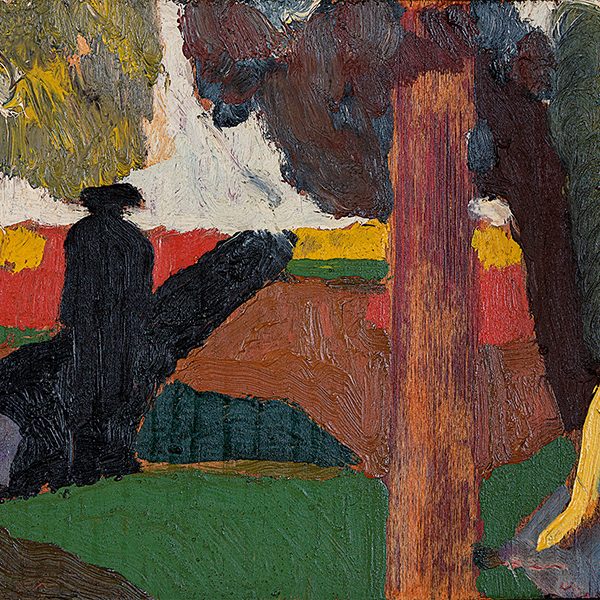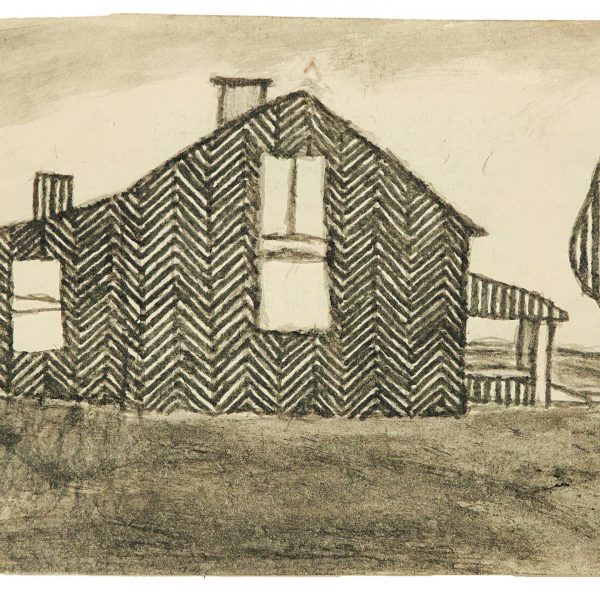The Feininger “Family Business”
The youngest son of Lyonel Feininger, Theodore Lux Feininger (or T. Lux Feininger), died last month at the age of 101. The art world considered him the last living link to the Bauhaus school, according to Art Lyst. Although his relationship with his father was difficult at times, being the son of the man who is considered “one of the fathers of modern comic art” led him down some paths similar to Lyonel’s. Besides creating some of their art under the Bauhaus school, both started art careers as teenagers and worked in several media. Lyonel is known for his caricatures, oil paintings, and comics, while T. Lux is best known for his photography and painting, as noted by the Boston Globe. Both were U.S. citizens who lived in Germany for much of their lives before being forced back to the U.S. after the Nazis rose to power.
 T. Lux Feininger belonged to a family of artists, as Barbara Haskell shows in Lyonel Feininger: At the Edge of the World, accompanying a major retrospective of the same name on view at the Whitney Museum of American Art before traveling to the Montreal Museum of Fine Arts early next year. Covering the full breadth of Lyonel’s artistic career, including his contributions to German Expressionism and the Bauhaus, Haskell places Feininger as a central figure in developing early 20th-century forms and the conversations that took place between German and American styles of art. T. Lux’s grandparents were travelling musicians whose careers led to the family’s move from the U.S. to Germany; his older brother, Andreas, became a famous photographer; his mother Julia was an aspiring artist and musician; and his father Lyonel was one of the first “inter-national” artists.
T. Lux Feininger belonged to a family of artists, as Barbara Haskell shows in Lyonel Feininger: At the Edge of the World, accompanying a major retrospective of the same name on view at the Whitney Museum of American Art before traveling to the Montreal Museum of Fine Arts early next year. Covering the full breadth of Lyonel’s artistic career, including his contributions to German Expressionism and the Bauhaus, Haskell places Feininger as a central figure in developing early 20th-century forms and the conversations that took place between German and American styles of art. T. Lux’s grandparents were travelling musicians whose careers led to the family’s move from the U.S. to Germany; his older brother, Andreas, became a famous photographer; his mother Julia was an aspiring artist and musician; and his father Lyonel was one of the first “inter-national” artists.
Born in the U.S., Lyonel moved to Germany as a teenager and spent the majority of his life there. He was almost a prodigy, with art teachers waving entrance examinations into their art schools after reviewing his portfolio, even though he had moved to Germany with the intention of becoming a violinist. Bouncing between Paris and Germany throughout his career allowed him to practice new styles, meet contemporary artists, and eventually break into the world of cubism. His caricatures and comics, especially Kin-der-Kids and Wee Willie Winkie’s World, influenced the rest of comic book art after him.
Photography, however, captured all of the Feininger family. Lyonel “created a series of works marked by a modernist ambition” at the Bauhaus in Dessau in 1928. Lyonel’s children were the inspiration behind his photography during this period, argues Haskell. Three years earlier, Andreas and T. Lux, both older teenagers, began using a Goertz-Anschutz glass-plate camera and an old Kodak box camera, respectively. Their brother Laurence also experimented with the medium and half-sister Lore worked in the studio of a fashion photographer. Lyonel, who influenced his children towards the arts, had come full circle in a familial give-and-take.

























